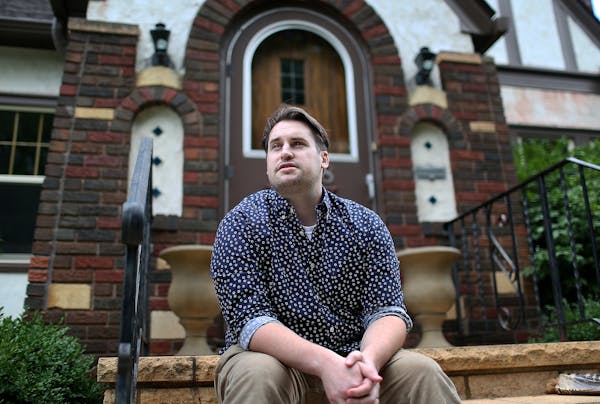Gov. Tim Walz on Tuesday pledged to back a developing effort to create a statewide restorative justice program for veterans charged with certain crimes.
The Minneapolis-based nonprofit Veterans Defense Project helped create a draft of the legislation, and those who worked on it are optimistic that bills will be introduced in the state House and Senate as soon as this month.
But Walz — himself an Army veteran — opted not to wait for that step, instead assuring an audience of veterans and officials from across the state's criminal justice system Tuesday that the measure would be a priority.
"It's smart. We need to get it done," Walz said at an event in St. Paul held to show support for the legislation. "Maybe this is slightly unorthodox, [but] I want to make it very clear that we stand 100 percent with you. The governor's office is here to make sure this gets done."
According to proposed language in a draft of the bill circulated Tuesday, a judge could stay adjudication in certain cases pending the completion of probation in cases where the judge determined that a veteran committed the crime because of a service-related condition like post-traumatic stress disorder or substance abuse.
Veterans Defense Project President Brock Hunter, a veteran and private defense attorney, said the program picked up from a 2008 law that allowed judges to consider additional treatment recommendations for veterans convicted of a crime. Since then, Hunter said about 12 specialty treatment courts for veteran offenders have been created in Minnesota. But they still serve just a fraction of the state's counties, and disparities have led the state's public defender to pull its attorneys from participating.
"Within the last decade, frankly we started resting on our laurels," Hunter said.
The project is proposing a "restorative post-plea, pre-adjudication model" where veterans enter a plea but can have charges dismissed upon completing the terms of their probation. The proposed legislation pulls from existing laws in California, Texas and Minnesota's existing drug sentencing options.
Hunter pitched the proposal as an answer to the waves of combat veterans suffering after completing tours of duty in Iraq and Afghanistan. Marko Milosevic, a 12-tour veteran of the Army's elite Ranger Regiment, was able to complete a probationary term in Bemidji following charges of domestic assault in 2014 and has since gone on to advocate for restorative justice opportunities for those like him.
"I've been able to continue to be a husband to my wife and a father to my children," Milosevic told the audience Tuesday. "If it wasn't for these intervention options, I know exactly where I'd be: I'd be in jail."
Milosevic's story was contrasted with that of Arthur Torgesen, a Columbia Heights man who had frequent run-ins with the law without an intervention before killing his wife and trying to set himself on fire in 2008.
"It's simple: we broke 'em, we fix 'em," Washington County Attorney Pete Orput said Tuesday, speaking in support of the measure.
The project's proposal further argues that by taking a restorative rather than punitive approach to crimes scored at seven or below on the state's sentencing guidelines scale — crimes like DWI or theft — the state would accept both the government's and public's "shared responsibility for crimes that were the foreseeable result of our decision to send our young volunteers into our wars."
"I just want to be very clear that Minnesotans, there are a few issues that unite them," Walz said in his brief remarks at the Landmark Center. "If there's truly a theme behind One Minnesota it is care for those who have served us in uniform. They care deeply about that. They care because it is a reflection of our values. They also know it is smart and the right thing to do."

Fact check: Walz and Vance made questionable claims during only VP debate

In Tim Walz's home city, opposing groups watch him debate on the national stage

